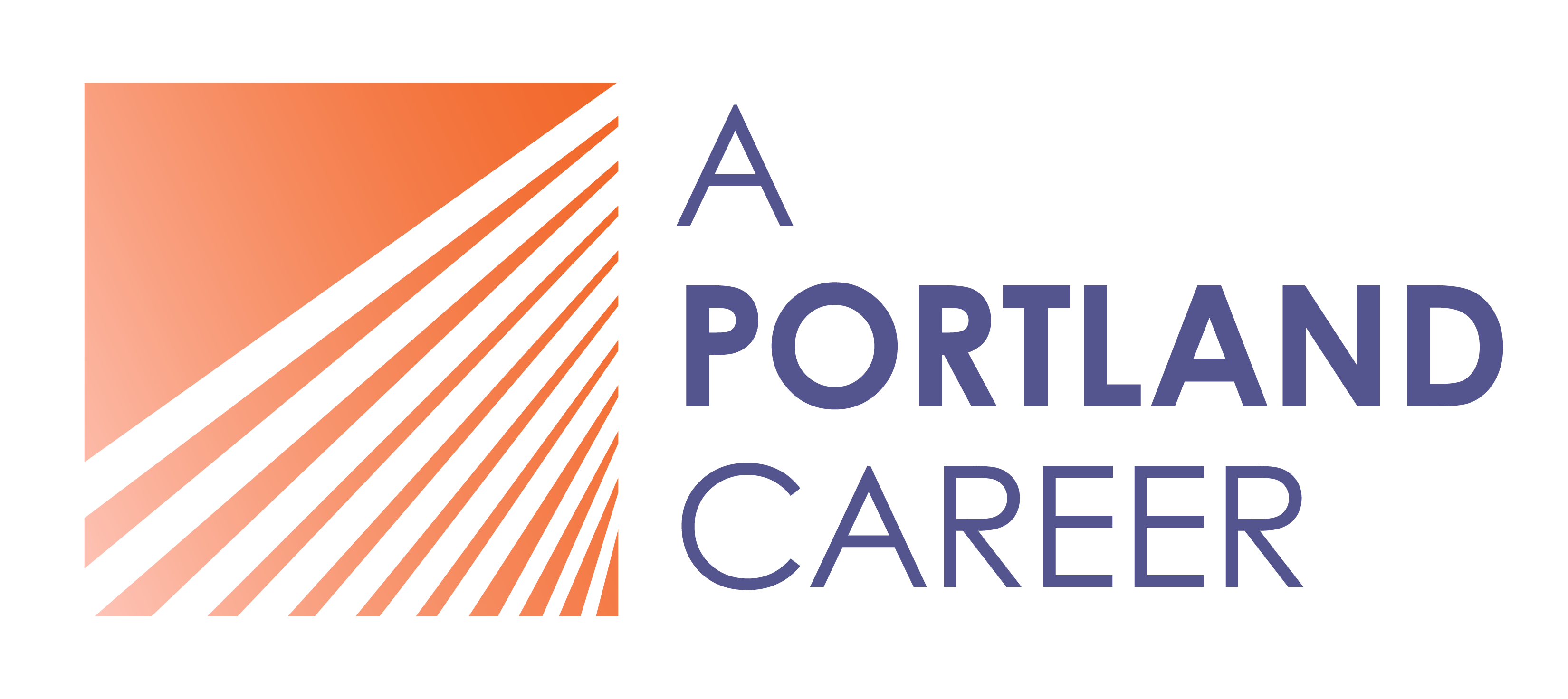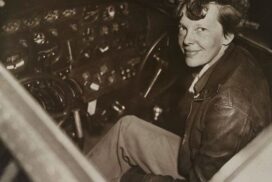Here’s 7 of our best tips to take your career exploration from brainstorm to organized search. Narrow down job titles, tap your network, and find the right research...
Find out your Myers-Briggs personality type with our assessment and learn what it means (or doesn’t mean) for your work life!
What Does Your MBTI Personality Type Actually Mean for Your Career?
By A Portland Career, and edited by Jelena Grove, Dan Hahn, M.S., and Suzie Sherman
Need help finding your ideal career path? Talk to us—we’ve got ideas

Translated into over 30 languages and implemented by more than 10,000 companies, 2,500 colleges, and 200 government agencies in the United States, the influence of the Myers-Briggs is pervasive. Since the Educational Testing Service added the research to its portfolio in 1962, over 50 million people have taken the Myers-Briggs personality test.
You may have heard of the perennially popular Myers-Briggs personality test, also known as the 16 personalities test. It all started when Katharine Cook Briggs met her future son-in-law Clarence Myers. Katharine was struck by the starkly different worldviews between her daughter Isabel and Clarence. Katherine Briggs and Isabel Briggs Myers began researching personality theories in 1917, and eventually found psychoanalyst Carl Jung’s book Psychological Types, published in 1921.
Briggs and Briggs Myers found Jung’s theories on personality were similar (albeit more developed) than their own, so they incorporated aspects of Jung’s work into their typology theory and created a questionnaire to help people understand themselves better. This became the basis of what we now refer to as the Myers-Briggs Type Indicator (MBTI), a lifelong project on different personality types that the mother-daughter team continued to refine.
In our opinion: While there are many merits, believers, and followers of the MBTI, it’s not a scientifically valid or reliable assessment. However, the framework and interpretations from each of the typologies are great for creative conversation. In fact, we use an MBTI variant as part of our career exploration process with our clients. When taken together with other assessments and reflections, this tool can help refine and shape important search criteria for your career exploration.
Home → Helpful Articles → Career Exploration → What Does Your MBTI Personality Type Actually Mean for Your Career?
We think the most effective career exploration starts with knowing yourself, identifying your passions, and utilizing the best career search tools available. Here are some great posts to help you get started:
- The Big 5 Personality Traits: Get to Know Yourself to Find a Better Career Path
- Crack The Holland Code and Unlock Your Career Aspirations
- How to Decide on a Career Path
- Getting Clear on Your Career Path: Discerning Your Interests and Passions
- Your Career Values Assessment
- Taking Your Skills Inventory: Self-Assessment Time
- The 6 Best Career Exploration Websites to Narrow Down your Job Search
If you want more guidance, get in touch, and we’ll help you explore your aptitudes and interests to find a great career match for you.
On This Page
- Take our quick MBTI type personality assessment
- How the Myers-Briggs applies to career happiness
- The 16 Myers-Briggs personality types
- ISTJ: The Logistician / The Examiner / The Agent Scully
- INFJ: The Counselor / The Advocate / The Dr. Melfi
- INTJ: The Mastermind / The Architect / The Walter White
- ENFJ: The Giver / The Protagonist / The Oprah Winfrey
- ISTP: The Craftsman / The Virtuoso / The Arya Stark
- ESFJ: The Provider / The Consul / The Taylor Swift
- INFP: The Mediator / The Idealist / The Frodo Baggins
- ESFP: The Performer / The Entertainer / The Gob Bluth
- ENFP: The Champion / The Campaigner / The Willy Wonka
- ESTP: The Doer / The Entrepreneur / The Anna Wintour
- ESTJ: The Executive / The Organizer / The Dolores Huerta
- ENTJ: The Commander / The General / The Gordon Ramsay
- INTP: The Thinker/ The Logician / The Sherlock Holmes
- ISFJ: The Nurturer / The Defender / The Beyonce
- ENTP: The Visionary / The Debater / The Dr. Ian Malcolm
- ISFP: The Composer / The Adventurer / The Bob Ross
- Final thoughts on what your Myers-Briggs type means for your career
Take our quick MBTI type personality assessment
Use the chart below to do a quick self-assessment of your personality type. The pairs of types, like Extroversion vs Introversion, are called dichotomies. Read each description and keep a tally of the items that sound most like you. Then, below the chart, choose the letters for each of the four pairs that has the most checkmarks. This is your four-letter code, or MBTI personality type (for example, INFJ). *Note that “Introversion” is denoted with “I,” and “INtuition” is denoted with “N.”
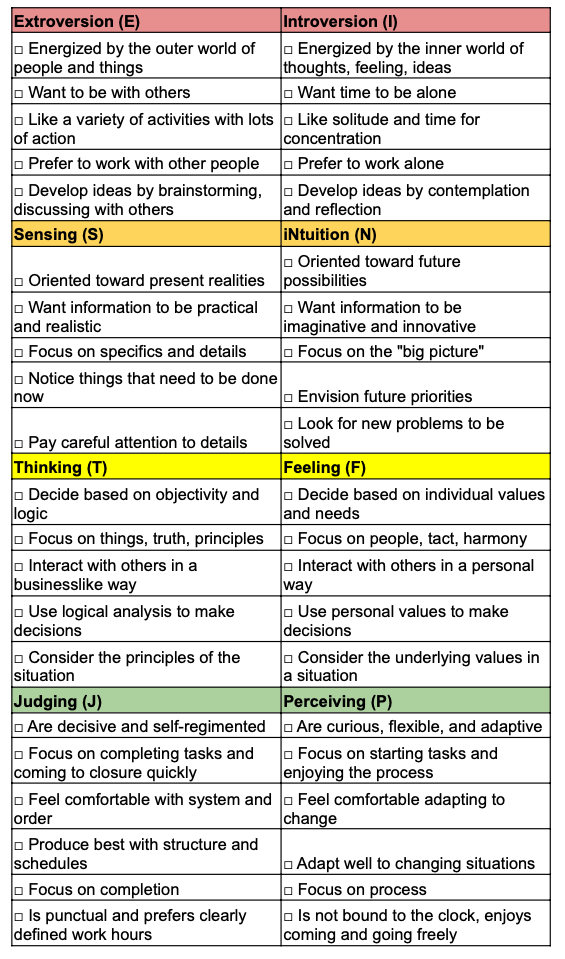
Where do you have the most checkmarks in each set of dichotomies? (For example, do you have more checks in Extroverion or Introversion; more checks in Sensing or iNtuition, and so on.)
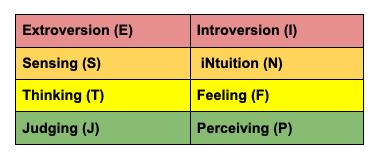
Now take your four-letter code and have fun thinking about how your type might groove in different career paths.

How the Myers-Briggs applies to career happiness
The professional study of psychological types is founded on the idea that understanding your type helps you appreciate your own strengths, gifts, and potential for personal growth, while enhancing your appreciation of how other people differ from you.
Taking the full MBTI with the guidance of a career expert, or exploring your results on your own, will help clarify career directions that are often congruent with your type. For example, if you are a strong T (Thinking) and a strong J (Judging) you might be drawn to work with clear systems and processes that result in concrete outcomes, like engineering or program management. Conversely, the results can provide clear hints as to which careers you might find more challenging. If you have a strong F (Feeling) and P (Perceiving), the same highly structured career paths might feel overly impersonal and constraining.
Striking the right chord of personal and professional fulfillment starts with exploring your personality, but it shouldn’t stop there. Archbishop Desmond Tutu wisely said:
“Differences are not intended to separate, to alienate. We are different precisely in order to realize our need for one another.”
By deeply considering the complex interplay of your temperament and interests with your professional and personal relationships, you will make better career choices and travel your career journey with more ease.
The 16 Myers-Briggs personality types
As you read this post, keep in mind that your ideal career path is not dependent on your personality type. Virtually anyone from any personality type can be successful in virtually any career. What’s more, people with similar personality traits will, more often than not, have completely different personalities on the whole.
So do yourself a favor and don’t take anything from this list as gospel. Just have fun and corroborate your readings with the research and soul searching you’re already doing. And talk to one of our career experts too, while you’re at it.
Let’s dive in, shall we?

ISTJ: The Logistician / The Examiner / The Agent Scully
Introverted, Sensing, Thinking, Judging
Those with the Logistician (not to be confused with the INTP Logician) label are said to be the most common of all personality types. Good thing, too, given their reputation for reliability, pragmatism, and healthy skepticism of the world.
Bound to their duties and set-in-stone goals, the Logisticians of the world are pragmatic problem solvers, just like our favorite supernatural myth-busting FBI Agent Dana Scully, the one who keeps David Duchovny’s emotional and impulsive character in check with quantitative data and cold, hard facts.
Common careers for ISTJ’s:
- Lawyer
- Detective
- Military officer
- Judge
- Financial analyst
- Insurance underwriter
- Engineer
- Technician

INFJ: The Counselor / The Advocate / The Dr. Melfi
Introverted, INtuitive, Feeling, Judging
The Counselor personality type is said to be the rarest of all the Myers-Briggs typographies.
If you fall into this category, there’s a good chance you have the supernatural ability to find the good in even the most corrupt mob bosses among us. With a deep sense of compassion, social obligation, and a drive to use their innovative nature for social good, INFJ’s lend their creativity and passion to affect positive change in the world around them.
You may not be the most social of creatures, but hey, at least rest assured that you’re (probably) doing the right thing with your life.
Common careers for INFJ’s:
- Psychologist
- Teacher
- Counselor
- Social worker
- Fitness instructor
- Psychiatrist
- Medical researcher
- Occupational therapist
- Designer

INTJ: The Mastermind / The Architect / The Walter White
Introverted, INtuitive, Thinking, Judging
Are you a coldhearted, diabolical sociopath who will stop at nothing to achieve your goals? Ergh—we mean, are you a somewhat reserved, rational pragmatist with impeccable organization skills? Are you a solution-oriented innovator who may or may not be good with complex numbers and figures? Congratulations, you may be an INTJ!
Like Walter White, you have a keen sense of when it’s time to take a big-time, calculated risk to make a big-time gain (which we hope doesn’t involve building a successful meth empire from the ground up). Interestingly enough, some other famous INTJ’s include Elon Musk, Vladimir Putin, and Tywin Lannister. Being an INTJ doesn’t necessarily make you a villain, but hey, at least your kind is pretty darn smart.
Common careers for INTJ’s:
- Investor
- Accountant
- Lawyer
- Statistician
- Research Analyst
- Chemist
- Pharmacist
- Economist
- Engineer
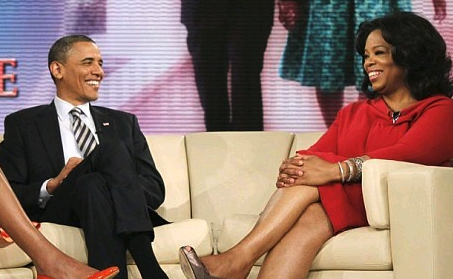
ENFJ: The Giver / The Protagonist / The Oprah Winfrey
Extraverted, INtuitive, Feeling, Judging
Are you a charismatic do-gooder with a sincere moral compass and natural leadership skills? Yay, you’re probably an ENFJ! Unlike your INFJ cousins above, you have a knack for genuine personal connection and energize yourself in the company of others.
According to the 16Personalities assessment of The Protagonist type, you have an unshakeable strength of conviction and a dedication to doing the right thing—especially when it comes to guiding and inspiring other people. Your emotional intelligence and social skills will take you far, even though you may not have the means to gift a brand-new Pontiac G-6 to everyone you know.
Common careers for ENFJ’s:
- Human resources specialist
- Nonprofit director
- Customer service representative
- Product developer
- Advertising representative
- Health educator
- Reporter
- Teacher
- Nurse

ISTP: The Craftsman / The Virtuoso / The Arya Stark
Introverted, Sensing, Thinking, Perceiving
Do you hate rules, sitting at a desk, and endless philosophizing over the best way to get something done? Do you thrive in times where your technical and mechanical expertise allows you to wing it in high-pressure situations? Perhaps you crave an element of danger or adventure in your work (minus the swords, dark magic, or hit lists for members of feudal royal families).
According to 16Personalities, The Virtuoso type makes up only about 5% of the population, making it one of the rarest out there. While you may be a bit of a lone wolf at times, you have a keen eye for detail, a logical outlook on life, and an enviable savvy with the tools of whatever trade you set your mind to.
Common careers for ISTP’s:
- Emergency responder
- Geologist
- Forensic scientist
- Robotics engineer
- Mechanic
- Graphic designer
- ER doctor
- Building inspector

ESFJ: The Provider / The Consul / The Taylor Swift
Extraverted, Sensing, Feeling, Judging
Has anyone ever called you a social butterfly, a goodie-goodie, or, maybe, a bit of a square? Don’t despair, as these slights may in fact be correlated with a highly altruistic and supportive personality type: The Provider.
You may be slightly more conservative than the rest of the bunch in this list, choosing to base your values on the safety of pre-existing traditions from your family or country rather than from a sense of philosophy or avant-garde thinking. Regardless, given your conflict-averse nature and love of cooperation and helping others, you have a knack for putting a smile on people’s faces and bettering the days of those in your orbit—at home, in school, or in the workplace.
Common Careers for ESFJ’s:
- School or healthcare administration
- Personal accountant
- Social worker
- Nurses
- Minister
- Early education teacher
- Cosmetologist
- Pediatrician
- Nutritionist

INFP: The Mediator/ The Idealist / The Frodo Baggins
Introverted, INtuitive, Feeling, Perceiving
Do you ever catch yourself daydreaming about a world free of evil and suffering? Do nature, the arts, and music stir your soul and awaken your compassionate spirit? Is your profound sense of empathy at once your greatest asset and liability? Then, like the soft-hearted yet evil-vanquishing Frodo Baggins, you may be an Idealist.
This personality type is famous for its sensitivity, vibrant creative expression, and determined pursuit of a higher calling—usually one that involves saving the day in some way. Your fascination with human nature (and dedication to improving it) is what makes you such an interesting and vital part of any organization, family, or social group. Just try to stay away from Mordor unless you have some gritter personality types in your posse—your type isn’t exactly known for its skill with weapons.
Common careers for INFP’s:
- Anthropologist
- Musician
- Fine artist
- Veterinarian
- Midwife
- Librarian
- Creative writer
- Photographer
- Massage therapist
ESFP: The Performer / The Entertainer / The Gob Bluth
Extraverted, Sensing, Feeling, Perceiving
Being an Entertainer is about much more than having an aptitude for showmanship. Although you don’t necessarily mind being the center of attention from time to time, the thing that really butters your biscuit is improving people’s daily lives, whether by the simple act of cooking someone dinner, performing a crappy magic trick (that still makes them laugh), or helping them solve one of their deeper life’s problems.
In the workplace, The Entertainer prefers a social work environment and teamwork to the often isolating world of freelancing. No matter what field you end up in, you need a place where you can be your spontaneous, engaging, and playful self.
Common careers for ESFP’s:
- Elementary school teacher
- Retail manager
- Salesperson
- Actor or performer
- Nurse
- Public relations specialist
- Real estate agent
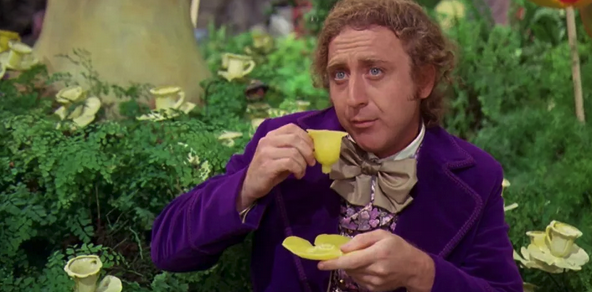
ENFP: The Champion / The Campaigner / The Willy Wonka
Extraverted, INtuitive, Feeling, Perceiving
ENFP’s are people-people, through and through. Motivated by a strong desire for meaningful connections with other humans and harmony with the world around them, The Campaigner’s sense of wonder and enthusiasm tend to rub off on whoever is around them. But don’t be fooled by their childlike exuberance, this personality type has a deep, and often deeply sad side, too.
Given their reputation for being imaginative, highly expressive, and free-spirited, it’s no surprise The Willy Wonkas of the world tend to gravitate towards more creative career paths. That said, your sensitivity, warmth, and compassion make you an asset no matter what field or career you choose (especially if it’s running a magical candy factory for small children).
Common careers for ENFP’s:
- Actor
- Musician
- Travel agent
- Flight attendant
- Archaeologist
- Psychologist
- Urban planner
- Writer/author
- Art director
- Health educator

ESTP: The Doer / The Entrepreneur / The Anna Wintour
Extraverted, Sensing, Thinking, Perceiving
When was the last time you took a nap or played video games before checking off all your tasks for the day? If you’re a true ESTP, like the Anna Wintours and the Madonnas of the world, the answer is probably never.
Energetic, action-oriented, and pragmatic to a fault, The Entrepreneur stops at nothing to get their work done. With their ultra-competitive nature and silver-tongued wit, it’s no surprise that the chief antagonist (or in your case, protagonist?) in The Devil Wears Prada was inspired by the likes of this personality type. While you may get bored easily and have a propensity for leading a bit of a risqué life, your social savvy and aptitude for improvisation mean you never have to worry about fixing your rare mistakes as you go along. Just try to keep the scandalousness at a minimum, lest you ruin your hard-earned reputation.
Common careers for ESTP’s:
- Stock investor
- Freelancer of any kind
- Emergency responder
- Paramedic
- Pro athlete
- General contractor
- Biologist
- Broker
- Budget analyst
- Military officer
- Airline pilot

ESTJ: The Executive / The Organizer / The Dolores Huerta
Extraverted, Sensing, Thinking, Judging
Are you a fearlessly loyal, natural-born leader willing to sacrifice your well-being to bring a project to completion, like Dolores Huerta, one of the most consequential leaders in the American farm workers rights movement? Try this: if you’re known by your friends and loved ones for your diligence, emotional stability, and iron-clad moral fiber, there’s a good chance you may be an ESTJ.
They’re the kind of managers people rely on to deliver consistently awesome results in all things, and they love nothing more than bringing a challenging project or campaign to completion—even if it comes at their own expense. If you really are an ESTJ, your people skills and strong backbone will protect you from those who would want to take advantage of your goodwill and hardworking energy.
Common careers for ESTJ’s:
- Community organizer
- CEO or CFO
- Chef
- School principal
- Engineer
- Management consultant
- Hotel, retail, or office manager
- Public administrator
- Attorney
- Judge

ENTJ: The Commander / The General / The Gordon Ramsay
Extraverted, INtuitive, Thinking, Judging
Have you ever slapped an incompetent apprentice’s head between two slices of bread and called them an idiot sandwich? No? … But wanted to? Well then, there’s a good chance you may be an ENTJ, better known as The General.
This personality type is notorious for producing strategic and decisive leaders who think outside the box, lead others without fear, and carry more inertia than is sometimes good for them. They’re authoritative alphas who, while prone to having some embarrassing meltdowns from time to time, are productive pragmatists that dominate their respective fields, overcome complex challenges, and solve problems big and small.
We don’t know what ENTJ’s need to hear this, but please, for the love of god, just cool it a little, would you?
Common careers for ENTJ’s
- Entrepreneur
- Attorney
- Analyst
- Logistician
- Engineer
- Biochemist
- News analyst
- Surgeon
- College professor
- Director
- Developer
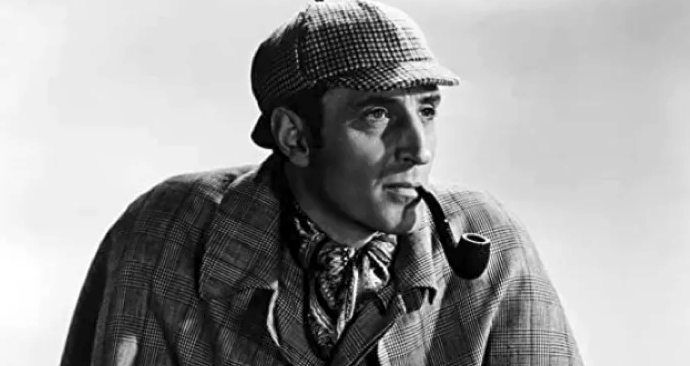
INTP: The Thinker / The Logician / The Sherlock Holmes
Introverted, INtuitive, Thinking, Perceiving
Not to be confused with the Logistician (ISTJ) above. No, if you’re a real Logician, you tend to be much more in-tune with your intuition and opportunistic side than the Agent Scully-detective types. You may find yourself a bit on the eccentric side, with a flair for creative experimentation and a knack for forging the unlikeliest, most unique, and often wildly difficult career paths.
Though with your gift of striking intelligence comes a somewhat unfortunate reputation for being aloof. But that’s just because you don’t want to waste your time with those who aren’t as sharp or effective as you. Don’t worry about those who would believe you’re not actually quite friendly deep down—that’s just elementary, my dear INTP.
Common careers for INTP’s:
- Software developer
- Systems analyst
- Architect
- Engineer
- Technical writer
- Political scientist
- Epidemiologist
- Economist
- Research analyst
- Urban planner
- Statistician

ISFJ: The Nurturer / The Defender / The Beyoncé
Introverted, Sensing, Feeling, Judging
If we had to pick le mot juste for this personality type, it would be, simply, “fierce.”
You’re a protector at heart, with boundless energy, sharp attention to detail, and a warmth that radiates to all things under your watchful eye. You love deeply and don’t shy away from vulnerability and self-expression (would Beyonce shrink from calling out Becky with the good hair or expounding on her marriage troubles with Jay-Z in her music? We think not.) Those traits help make you such a brilliant caretaker, friend, and ally.
If you’re a real Defender, you may also have an enormous capacity for dealing with life’s knocks, which is a good thing, given that this personality type is said to be drawn more to the medical sciences than any other field.
Common careers for ISFJ’s:
- Social worker
- Nurse
- Food scientist
- Physician
- Forest conservation technician
- Dentist
- Librarian
- Teacher
- Financial advisor
- Actuary
- Correctional officer

ENTP: The Visionary / The Debater/ The Dr. Ian Malcolm
Extraverted, INtuitive, Thinking, Perceiving
Quick-witted, silver-tongued, smart alecks, devil’s advocates, clever rascals, and scallywags. No matter, you don’t tend to take name-calling personally—if you did, you’d be called an ISFP (up next).
The Debaters of the world are legendary for their razor-sharp smarts, flair for argumentation, and deep capacity to understand and untangle even the most complex and elusive subjects out there. Take, for instance, using your expertise in chaos theory to consult about the dangers of resurrecting dinosaurs!
In line with their independent and individualistic nature, ENTP’s are the most likely to go it alone and be self-employed.
Common careers for ENTP’s:
- Freelance writer
- Advertising agent/manager
- Editor
- Reporter
- Lawyer
- Detective
- Research analyst
- Engineer
- Computer scientist
- Historian
- Physician

ISFP: The Composer / The Adventurer / The Bob Ross
Introverted, Sensing, Feeling, Perceiving
Do you lack concrete ambition and skill in long-term planning, yet crave artistic freedom above all else? Well, you just might be an ISFP. Like their INFP cousins, people with this personality type are notorious for their artistic inclinations and free-spirited nature. Yet unlike INFP’s, the Bob Rosses of the world possess a uniquely spontaneous outlook on life, and prefer to go with the flow rather than overthink or over plan. Perhaps like you, they’re the ones who can turn a bungled tree branch into a beautiful bird without so much as rolling an eye (recall from your childhood, “We don’t make mistakes, we have happy accidents.”).
Due to their introverted tendencies, it can take some time to get to know ISFP’s. When they let you in, they’re a wellspring of warmth, generosity, and sensuality. They tend to be an adventurous sort, which by default makes them a tad unpredictable—but no less fun to be around or to work with, in the right setting and circumstance.
Common careers for ISFPs:
- Chef
- Forester
- Fashion designer
- Interior designer
- Graphic designer
- ER physician
- Botanist
- Firefighter
- Artist
- Cosmetologist
- Carpenter
Final thoughts on what your Myers-Briggs Type means for your career
The Myers-Briggs Type Indicator is a multifaceted test best to take along with the guidance of a certified MBTI trainer. Your results will be more accurate, revealing where you are on the continuum of each dichotomy. Also, you will benefit from discussing the results as “part of a balanced diet” of a deeper career exploration.
If you want to take an abbreviated version of the MBTI test and review the results yourself, check out these websites:
Each includes instructions on how to take the test and provides a report about your personality. Find out your 4-letter MB type, and have fun exploring the kinds of careers you might feel best suited to.
Understanding your personality also offers insight into how your ideal career intersects with your personal life. Some people like their work and home lives to be completely separate while others are more comfortable with an intimate dance between the two. Deeply understanding your personality type can help you appreciate this work-life balancing act.
Key takeaways
- The Myers-Briggs Type Indicator was created by Katharine Briggs and her daughter, Isabel Briggs Myers, based in large part on Jung’s Psychological Types, and grounded in psychometric methodology.
- While the MBTI is not supported by the same level of robust data that the 5 Factor Personality Model is, we’ve found that the framework is useful to clients to begin to understand their own personality tendencies and apply this knowledge to a more comprehensive career assessment process.
- The four dichotomies of the Myers-Briggs type structure are Extraversion/Introversion; Sensing/Intuition; Thinking/Feeling; and Judging/Perceiving.
- These four pairs then generate 16 different personality types. Check out the descriptions above! And remember, have fun with it!
Related articles you might be interested in:
The 6 Best Career Exploration Websites to Narrow Down your Job Search
Discover these Career Exploration Websites and find job titles, requirements, salary range, and the market outlook for the most promising career paths!
How to Decide On a Career Path
Deciding on a career path can feel overwhelming, but with clear objectives, solid self-assessment, and a healthy trust of your gut instincts, you can do this thing!
The Big 5 Personality Traits: Get to Know Yourself to Find a Better Career Path
The Big 5 personality model is a tool to help you gain emotional insight about your core personality traits and find the best career match for you!
